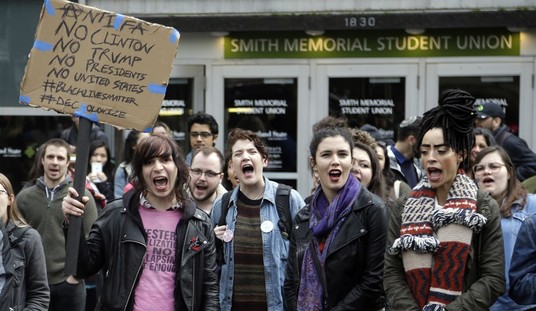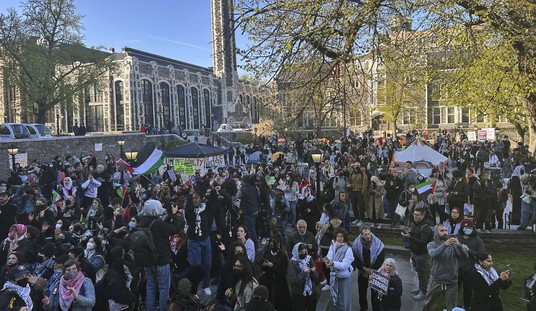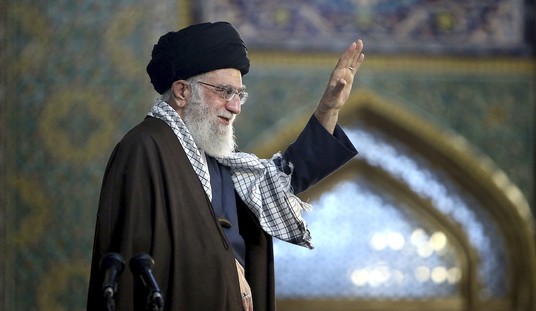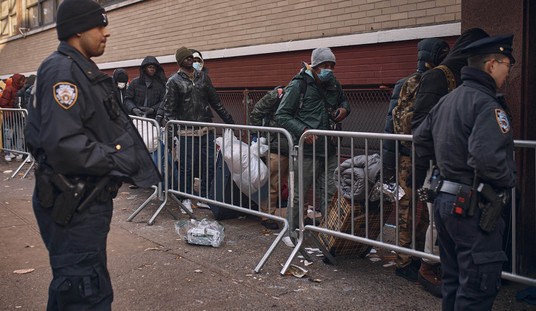The media likes to focus on President Donald Trump’s war on #fakenews (whatever the devil that means) but there appears to be an actual war – or at least a battle – on journalism at the Pentagon.
POLITICO reports the Defense Department may be restricting the access of journalists if they ask tougher questions or get a hot tip before the five-sided monument to inefficiency can officially make it public.
[One] example involved the military-news outlet Defense One, which was left out of a media roundtable with the deputy secretary of defense earlier this month to help roll out President Donald Trump’s proposed Space Force. The slight came after a Defense One reporter got an early scoop on plans to set up the new branch, breaking the story before the Pentagon was ready for it to go public.
Kevin Baron, the executive editor of the site, confirmed that none of his reporters were invited to the briefing and said that White had conceded to him in an email that the snub was due to the initial story.
Baron said White apologized for the incident in the email, saying that she was not aware that Defense One had been singled out and that the decision was made unbeknownst to her office’s leadership. The briefing had been organized out of the deputy secretary of defense’s office.
It may seem like an honest mistake on the surface but there appears to be a legitimate attempt by the Defense Department to limit reporter access to basic information and DoD officials. The Washington Times reported about issues with the Pentagon last month and put the onus on Defense Secretary James Mattis.
“He does not do interviews, and has only appeared in front of the Pentagon briefing room cameras a handful of times,” CNN Pentagon correspondent Barbara Starr wrote Wednesday.
“To keep a military low profile, Mattis had clamped down on releasing basic military information that has been publicly available for years. For example, the Pentagon no longer publishes a regular report on troop levels in Iraq, Syria or Afghanistan,” she continued. “Mattis has not yet commented in detail on Trump’s Helsinki meeting with Vladimir Putin — even as he, as secretary, has taken a publicly hard line on Russia. He also has not commented on Trump’s latest threats against Iran, even as Iran has threatened to shut down Gulf oil shipping.”
The Pentagon does make military officials regularly available to the press but typically limits the discussions to very specific topics.
It goes even further than Mattis’ reticent attitude towards wide-ranging discussions to possible retaliation if reporters don’t dare write kind words about the military. Via POLITICO:
The Washington Post’s Dan Lamothe had a rare opportunity to embed with U.S. Special Forces in Afghanistan in May pulled away after officials objected to an April story he wrote on Afghan commandos, according to reporters familiar with the situation.
The story in question was a straightforward account of how the Afghan military, by increasing its number of elite commando troops, was depleting its conventional army ranks. But officials took issue with the tone and some of the quotes used, the reporters said.
Securing that type of embed with special forces requires intense planning and consideration of risk on both sides, said a reporter from a different outlet, who called it “a hell of a thing to get.” To have the opportunity revoked, the reporter said, “is as egregious as it is unusual.”
This is problematic.
No, I’m not suggesting journalists should be able to broadcast classified briefings or hound Mattis et al at all hours of the day. There is something to be said about at least being willing to give out information on a regular basis, and I’m not sure saying, “Oh we have X amount of troops in the Middle East,” is suddenly going to make it easier for ISIS or Al-Qaeda or Syrian generals to target military members. Just like it makes zero sense to not say, “We have no comment,” if a tough question is asked of a spokesperson or Mattis himself.
The fact the government may be trying to retaliate against reporters for doing their job is as disturbing as when the Obama Administration tried to indict ex-Fox News reporter James Rosen and tapped the phones of the Associated Press at the State Department. It’s also plain petty.
A free and open press is important to our republic. The First Amendment exists for a reason, and the Virginia Declaration of Rights declared “the freedom of the press is one of the greatest bulwarks of liberty and can never be restrained but by despotic governments.” The fact the government is failing to follow this idea is as unsurprising as it is disturbing because it’s the nature of government to try to keep its citizens uninformed of what’s going on.
The Pentagon needs to reconsider its policy.








Join the conversation as a VIP Member